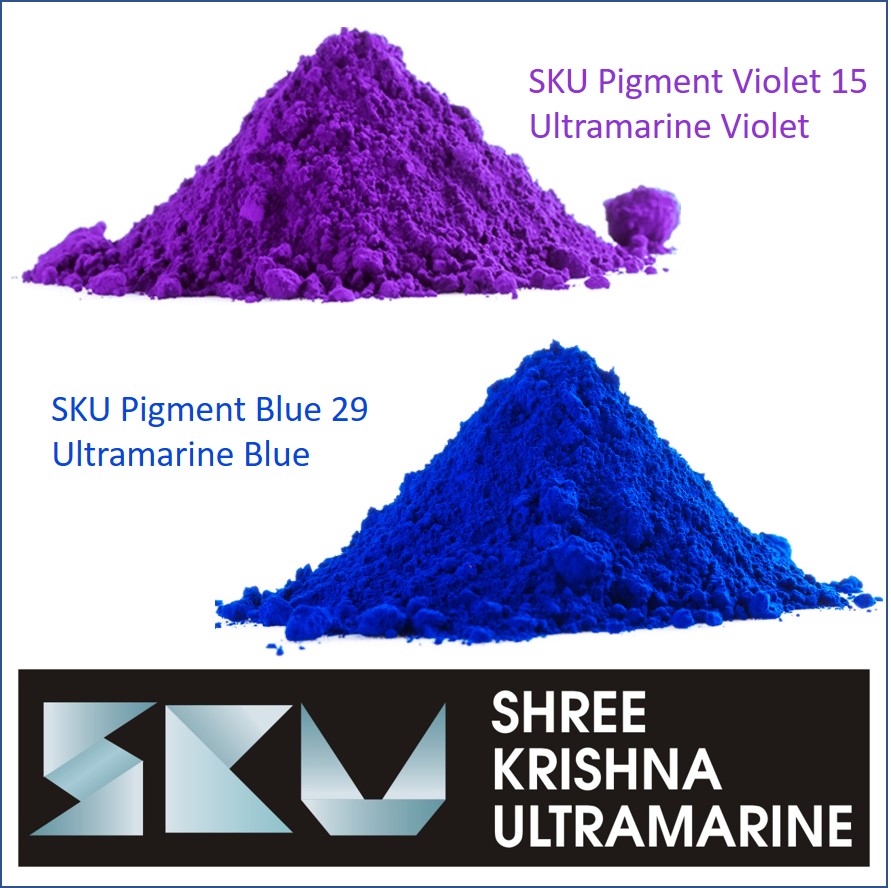Why Ultramarine Pigments Remain the World’s Most Trusted Blue

For generations, color has defined art, design, and industry. Among the most significant hues, Ultramarine is revered for its vivid tones. Today, companies like SKU Pigments produce high-quality Ultramarine pigments, including Ultramarine Blue, Ultramarine Violet, Pigment Blue 29, and Pigment Violet. From industrial coatings and packaging, Ultramarine has become the backbone of modern blue pigments.
The History and Significance of Ultramarine
The name Ultramarine comes from the Latin “ultra mare,” meaning “beyond the sea,” a reference to lapis lazuli originally imported from Afghanistan. For centuries, it was worth more than gold, used by Renaissance masters to illuminate manuscripts. It symbolized luxury and spirituality.
Modern chemistry made it possible to synthesize Ultramarine pigments, bringing the once-exclusive shade into mass production. This breakthrough turned a luxury color into a widely available solution for countless sectors.
Ultramarine Blue Pigments
Ultramarine Blue pigments—the synthetic form of Pigment Blue 29—are globally trusted. Known for their stability, they are safe, eco-friendly, and non-toxic. They are used in:
• Decorative finishes for durability and brilliance.
• Polymers and rubbers, thanks to UV resistance.
• Fine printing, where precision is vital.
• Personal care, given their safety profile.
This balance of durability and eco-friendliness keeps Ultramarine Blue among the top pigments.
Ultramarine Violet and Pigment Violet
Ultramarine Violet offers subtle elegance that appeal in Pigment Blue specialty coatings. Pigment Violet derived from Ultramarine is eco-safe, making it ideal for sensitive products.
Its gentle color enhances interior design, while ensuring durability without chemical breakdown.
Industrial Uses of Ultramarine Blue
Pigment Blue—particularly Ultramarine Blue pigments—remains a market leader. It offers tinting strength for:
• Car finishes with resistance to fading.
• Packaging, ensuring stable shades.
• Decorative plasters, adding beauty and durability.
This wide applicability ensures Pigment Blue’s staying power.
The Benefits of Blue and Violet Pigments
• Non-Toxic & Safe: Ideal for cosmetics and toys.
• Heat & Light Resistant: Stable in outdoor use.
• Eco-Friendly: Green production methods.
• Cost-Effective: Budget-friendly industrial choice.
• Versatile: Applicable everywhere color matters.
Ultramarine in Modern Industries
1. Paints & Coatings: Durable architectural shades.
2. Plastics & Rubber: Resistant to heat.
3. Cosmetics: Skincare-safe pigments.
4. Construction: Flooring products.
5. Printing & Inks: Precision printing.
SKU Pigments: Global Ultramarine Experts
SKU Pigments leads the market, offering innovation in Ultramarine pigments. Their product portfolio includes:
• Pigment Blue 29 for vibrant, bold applications.
• Ultramarine Violet and Pigment Violet for elegance and subtlety.
• Custom shades for specialized markets.
Their reputation is built on consistent quality and sustainable methods.
Ultramarine: From Heritage to High-Tech
From lapis lazuli origins to the backbone of blue pigments, Ultramarine has evolved with industries. Whether it’s the classic brilliance of Ultramarine Blue, the subtle elegance of Ultramarine Violet, or the dependability of Pigment Blue 29, Ultramarine pigments remain unrivaled.
With SKU Pigments as a global supplier, industries gain beauty, safety, and performance. As demand for sustainable pigments rises, Ultramarine will stay ahead in global markets.
Frequently Asked Questions
1. What is Ultramarine?
A blue/violet pigment with historic roots and modern industrial use.
2. What is Pigment Blue 29?
The synthetic form of Ultramarine Blue.
3. Where is Ultramarine Violet used?
In cosmetics and decorative paints.
4. Are Ultramarine pigments safe?
Trusted globally for safety.
5. Why choose SKU Pigments?
Trusted supplier worldwide.